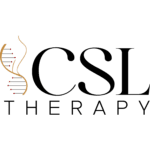Bylaws And Operating Procedures for the American Council of Body Altering Aesthetics
Inception date: October 28, 2022
ARTICLE I PURPOSE
The purpose of the American Council of Body Altering Aesthetics [accrediting & advisory board] (ACBAA) is to provide advice and recommendations on a broad range of policy issues dealing with the trainer provision, course approval, CSL vocational school accrediting, curriculum acquisition and execution, nomenclature management and CSL Therapy industry safety. Such assets include courses, CSL Therapy SOPs, establishing quality protocols and curriculum, educational standards, safety policies, Body Altering Aesthetics industry infrastructure, universal professional criteria, and legally regulated organization. The Board also provides advice regarding policies and guidance for the America Federal Board of CSL Therapy & Body Contouring (AFBCBC) & respective health departments on such issues as the scientific research of Pre and Post operative methods, client advocacy, elective procedure wound care, and short term assisted living recovery homes.
As deemed necessary, the Council has congregated agencies for the 6 main CSL Therapy sectors and may convene additional subgroups to support the Council, the Federal Board, and the State Board’s functions. All activities of the subgroups will be in compliance with the Federal Advisory Committee Act (FACA).
ARTICLE II MISSION AND FUNCTIONS
The Administrator of General Services has determined that the establishment of the Board is in the public interest. The Council is subject to the Federal Advisory Committee Act (FACA), as outlined in its Charter, to be filed with the Congress.
ARTICLE III Membership Selection and Appointment
Members of the Council are appointed by the Associate Administrator for Governmentwide Policy for such terms as may be appropriate for the accomplishment of the Board’s mission. Members will be selected based on specific needs and relevant extensive experience of the Board in order to balance those viewpoints required to effectively address CSL policy issues and pending formation.
Membership includes the responsibility to attend CSL and AFBCBC meetings personally. GSA reserves the ability to replace any member who is unable to fully participate in the Board’s meetings or uphold their oaths. Alternate members will not be permitted to represent those individuals appointed by GSA without prior written agreement.
ARTICLE IV. Meeting Procedures
The Council will meet as required. The Council will meet with the AFBCBC quarterly. The Council will meet with State Board directors annually. The Council will meet with CSL Agency Directors once a month until the AFBCBC is fully established and from there they will meet with them as needed. Meetings will be called by the Designated Council Official (DCO) in consultation with the Chief Research Analyst (CRA) according to the following considerations:
A. Agenda: The DCO will approve the agenda for all meetings. The CRA will distribute the agenda to the members prior to each meeting and will publish an outline of the agenda with the notice of the meeting in the Federal Register. Additional items for meeting agendas may be submitted to the DCO and/or by any member of the respective boards. Items may also be suggested by non-members, including members of the public.
B. Minutes and Records: The Council’s DCO will prepare minutes of each meeting and will distribute copies to each Council member. Minutes of open meetings will be available to the public on the website CSLtherapy.org. Minutes of closed meetings will also be available to the public upon request, subject to the withholding of matters about which public disclosure would be harmful to the interests of the Government, industry, or others, and which are exempt from disclosure under the Freedom of Information Act (FOIA). The minutes will include a record of the persons present (including the names of Board members, names of staff, and the names of members of the public from whom written or oral presentations were made) and a complete and accurate description of the matters discussed and conclusions reached, and copies of all reports received, issued or approved by the Council.
All documents, reports, or other materials prepared by, or for, the Council constitute official government records and must be maintained according to GSA policies and procedures.
C. Open Unless otherwise determined in advance: all meetings of the Council will not be open to the public. Once an open meeting has begun, it will not be altered for any reason. All materials brought before, or presented to, the Council during the conduct of an open meeting, including the minutes of the proceedings of an open meeting, will be available to the public for review or copying at the time of the scheduled meeting. Any materials needing discussion during closed meetings will be posted to the Council’s meeting minutes on the site within 7 business days.
Members of the public may attend any meeting or portion of a meeting that is not closed to the public and may, at the determination of the DCO, offer oral comment at such meeting. The DCO may decide in advance to exclude oral public comment during a meeting, in which case the meeting announcement published in the Federal Register will note that oral comment from the public is excluded and will invite written comment as an alternative. Members of the public may submit written statements to the CRA at any time.
D. Closed Meetings: Meetings of the Council will be open only in limited circumstances and in accordance with applicable In addition, requests for attendance to closed meetings must be approved by Council’s Office 5 days in advance of the session.
Where the DCO has determined in advance that discussions during a Council meeting will involve matters about which public disclosure would be harmful to the interests of the government, industry, or others, an advance notice of a closed meeting, citing the applicable exemptions of the Government in the Sunshine Act (GISA), will be published in the Federal Register. The notice may announce the closing of all or just part of a meeting. If, during the course of an open meeting, matters inappropriate for public disclosure arise during discussions, the DCO will order such discussion to cease and will schedule it for the next closed session.
Notices of closed meetings will be published in the Federal Register at least 15 calendar days in advance.
ARTICLE V Voting
When a decision or recommendation of the Council is required, the DCO will request a motion for a vote. Any member, including the DCO, may make a motion for a vote. No second after a proper motion will be required to bring any issue to vote.
ARTICLE VI Role of Council Officials
Executive Council Chairpersons: The Chairperson works with the DCO to establish priorities, identify issues which must be addressed, determine the level and types of staff and financial support required, and serves as the focal point for the Council’s membership. In addition, the Chairperson is responsible for certifying the accuracy of minutes developed by the Council to document its meetings.
Designated Council Officer: The DCO serves as the government’s agent for all matters related to the Council’s activities. By Law, the DCO must: (1) approve or call the meeting of the Council;
(2) approve agendas; (3) attend all meetings; (4) adjourn the meetings when such adjournment is in the public interest; and (5) Chair meetings of the Council.
In addition, the DCO is responsible for providing adequate staff support to the AFBCBC + State Board Directors + CSL Agency Directors, including the performance of the following functions:
(1) Notifying members of the time and place for each meeting; (2) Maintaining records of all meetings, including subgroup or working group activities, as required by Law; (3) maintaining the roll; (4) Preparing the minutes of all meetings of the Board’s deliberations, including subgroup and working group activities; (5) attending to official correspondence; (6) maintaining official CSL records and filing all papers and submissions prepared for or by the Council, including those items generated by subgroups and working groups; (7) acting as the Council’s agent to collect, validate and pay all vouchers for pre-approved expenditures; and, (8) preparing and handling all reports, including the annual report as required by FACA.
ARTICLE VII Expenses and Reimbursement
Expenses related to the operation of the Council will be borne by the Office of Governmentwide Policy. Expenditures of any kind must be approved in advance by the DCO. Each organization and agency within CSL Therapy which sponsors a specific sector activity will be responsible for providing support services outlined in Section VI, and will assure compliance with FACA and CSL’s related policies and procedures.
Federal government employees serving on the Council are eligible for additional compensation in respect to their position. The government will pay travel and per diem for non-government members at a rate equivalent to that allowable for federal employees. Expenses incurred that provide an approved relevant need in accordance to CSL Financial expenditures will be submitted and tendered
ARTICLE VIII Additional Information
CSL Chief Research Analyst is responsible for governmentwide oversight of CSL advisory committees. The CRA will provide advice to other CSL organizations as needed to assure the CSL Therapy Organization’s success.

